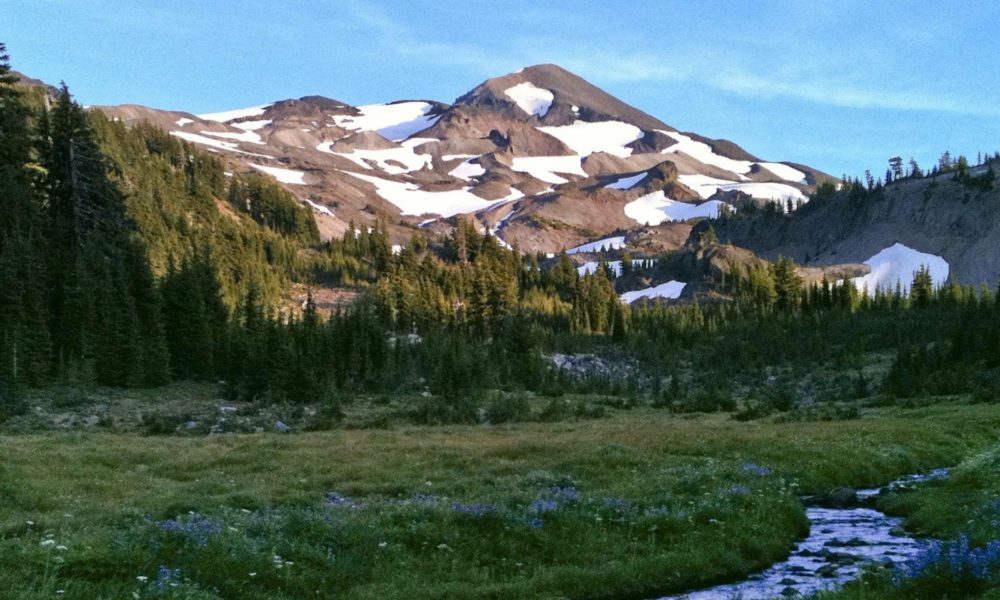It’s been hot here in Portland and there has been an uptick in aggression and erratic behavior in people. It seems like everyone I talk to feels like life is throwing them a lot of unexpected challenges of all kinds. I myself have encountered a lot of erratic and aggressive drivers. I’m bringing this up because it got me thinking about self-regulation in stressful situations, like a natural disaster, a mass shooting, or economic collapse. When we experience stress our body releases the stress hormone cortisol, and the sympathetic nervous system is activated. This can evoke the fight, flight, or freeze response. This can be useful if you can regulate it. That is because you will start losing some of your brain’s function and that won’t do anyone good. I’m going to list below a few techniques I like to use to manage my nervous system and at the end, I will describe a possible real-world emergency and how you can incorporate these techniques.
First, breathe. And I’m not talking about those shallow chest breaths most of us do when we aren’t being aware of our breathing. I’m talking about slow and deep belly breaths. You know you are doing it right if you are keeping your shoulders relaxed and you can watch your belly expand and contract with each breath. This breath uses your diaphragm, the muscle between your lungs and your intestines, to pull air into the lower part of your lungs. This fills your lungs more completely and is much more effective at calming your nervous system. I find it helpful to visualize it, so here’s a picture. By focusing on your breath, you are bringing yourself back into your body and lessening the negative effects of a stress response.

Second, take a break. If it is possible, step away for a moment and collect yourself and take a few breaths. If you are stressed, it is very easy to get fixated on the situation at hand and often it can do more harm than good. If you are becoming overwhelmed, do yourself and everyone else a favor and step back, even if it’s for 5 minutes. This action alone can significantly improve your problem-solving abilities.
Third, tune into your five senses. Tune in to each of your senses, one at a time, and identify 3-5 things that you are experiencing. This can be done at any point. Tune in and start with whatever sense you’d like. For example, say I have PTSD and I am triggered by something in my environment. I know there is no threat but now my body is pumping cortisol into my bloodstream, my thoughts are becoming scattered, and my hands start to shake. I’m able to recognize what is happening and I start with the first thing in the environment I notice. Mmmm, I smell cookies… the wood stove, and pine. I hear the piano, laughter, and crackling wood. I could taste the cookies, the wine, or the roast. I can feel the hardwood floor, the heat from the fire, and the soft blanket. I can see my favorite ornament, presents, and the cat curled up under the tree. This quick exercise quickly reduces your fight, flight, or freeze response and calms your nervous system. If it doesn’t work right away, keep trying, remember to breathe, or change your environment.

There are many ways that you can calm yourself down. These are just a few of them that are effective with my clients, and community. Next, I am going to walk through a possible scenario.
Let’s say I hear a gunshot come from my neighbors’ house. My nervous system is now on high alert. Instead of panicking, the first thing I’m going to do is take a few deep breaths as I assess the scene. I can safely observe with my eyes 3 things: their kitchen light is on, the front door is wide open, and their children ran across the street to the neighbors. Next, I don’t hear anything coming from the house, I hear the children crying, and I hear the neighbor say that they are calling 911. Then I remind myself, breathe. Next, I smell gasoline, the lavender bush I’m standing next to, and smoke. Breathe. Taste doesn’t apply to this situation. So next, touch. I can feel the sweat on my brow, my shaking hands, and my 9mm. Breathe. Before I act, I make sure I am grounded and regulated. Breathe. Now that I’m managing and aware of my nervous system I can continue with the next steps, all while continuing to regulate my nervous system and assess the scene. Breathe. In this moment I have been able to regulate without taking a break so I continue. However, after the event when there is no immediate danger and everyone is safe, one of the police officers asks me to debrief. At this moment, I realize I’m having a difficult time forming words because my nervous system is still on high alert. So, before I try to dive in, I take a break. I ask for some water, I step back, and I focus on my breathing. Then, when I am calm and feel that I can communicate more clearly, I approach the officer.

Using these techniques means the difference between being helpful or harmful. Breathing helps you physically regulate your nervous system, by focusing on what you sense in your environment, you are interrupting your erratic thoughts, and by taking a break you are creating an environment in which you can do those things. We can not control our bodies automatic responses but we can attempt to manage them, allowing us to make safer, and more effective decisions. So, instead of laying on your horn because someone didn’t see your blinker and let you into their lane, take a deep breath, assess the situation, and try again. 😉
Sam
















You must be logged in to post a comment.